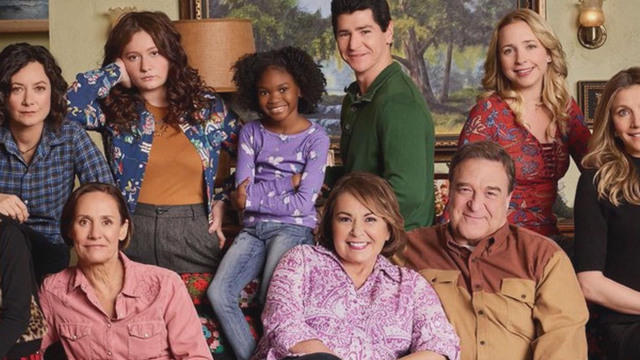Will and Grace. Roseanne. American Idol. Trading Spaces. You might be watching them, even loving them, but are they really a big problem for broadcasters?
Television’s content providers are rebooting old television as fast as they possibly can. Netflix led the revolution with Fuller House, bringing back the original cast for a few more go-arounds. Broadcasters saw the opportunity and started tentatively — A short commitment for Will and Grace proved instantly that audiences were willing to tune in. Now it seems like practically every show from the 90s is being “rebooted.” Family Matters: The Next Generation?” Don’t rule it out.
Personally I love this trend. I watch a lot of classic TV and this is a way for me to revisit the same characters without seeing the same old episodes. I’m obviously not alone, as reboot fever seems to be gripping the nation. Roseanne is the number one show on TV right now and has already been picked up for another season.
Ouroboros

An ouroboros is a symbol of a dragon or snake eating its own tail. It’s a very old symbol that is meant to mean, “what comes around, goes around.” If you think about it though, it also means “sooner or later that snake is going to eat itself to death.” Both meanings actually make sense when you’re talking about the current wave of TV reboots. Sooner or later we’re going to run out of ideas to reboot. I just know someone out there is looking at rebooting a show that left the air last year, or even giving a show a hiatus so they can reboot it. At some point we need to start producing original content.
But… isn’t this the era of “too much TV?”
Yes that’s true. There’s a ton of content out there now, too much for anyone to watch. There’s something for every taste and so you could just look at reboots as a piece of that puzzle. If you don’t like rebooted TV, go elsewhere. That’s just what broadcasters are afraid of, though. There are still a lot of baby boomers and GenX out there and that’s the real audience for rebooted TV. They’re clearly not getting what they want out of broadcast TV and reboots make them happy. Problem is, millennials and the younger generation (“GenZ?”) don’t care about broadcast TV either. So who’s going to be watching in 10 years?
I wrote about this problem in one of my favorite editorials from four years ago. Back then TV was trying to nab millennials but it didn’t work. Boy didn’t it work. Broadcasters need to find a way to drive younger people to live TV. For almost two decades that has meant unscripted TV. As with most TV trends, it was overdone and a lot of shows flopped. Today, unscripted “reality” TV is made up of some old fogeys — Survivor, Big Brother, Dancing With The Stars, and of course the rebooted Idol. Most new unscripted shows in the last 10 years have flopped, too.
So yes, there is some truth it. Rebooted TV is just one small fraction of the whole TV landscape. The problem is, it’s the biggest thing on broadcast TV.
Why is that a problem? Ratings are going up!
Short term, it isn’t a problem. Long term it’s a big problem. The current reboot fever is pretty toxic to the idea of developing good TV, and if you think it can last very long, you’re wrong.
Back in the late ’90s, broadcast television was dominated by Friends and ER. Both shows were incredibly expensive, thanks to collective bargaining by their casts. They were so expensive that NBC’s budget crashed and burned. With no money to spend on new shows, NBC fell from first-place to “who are you again” almost instantly. Their fall led to a decade full of throwaway reality shows and forgotten sitcoms. The honest fact is, there isn’t as much left to reboot as you think.
TV wasn’t there for millennials the way it was for earlier generations. They never developed the same kind of attachment for it. If broadcast TV wants to stay alive for another decade as millennials reach their 40s and boomers reach into their 70s and 80s, they need new ideas that actually work, not stuff from the last century.
Of course, this isn’t the first time that broadcast TV has faced struggles and it won’t be the last. It’s not even the first time TV reboots have graced the screen. Remember Star Trek: The Next Generation, the rebooted Get Smart, Love Boat, WKRP and others from their time in the 1980s? Broadcasters got over reboot fever back then, but of course there was no internet to compete. It should be interesting to see if they can roar back as strong this time.





